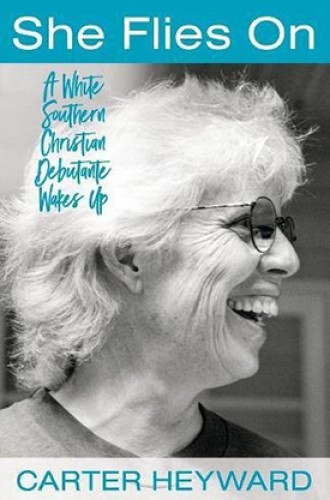The personal is political—and universal—for Carter Heyward
Heyward was one of the first women priests. But her particular experiences aren't the heart of her memoir.
If you enter this book with the expectation of a traditional memoir, you will likely end up disappointed. Carter Heyward is, as she says, a theologian “to her toes.” While she takes on the difficult task of integrating theology and personal story in this book, she is far more interested in the theology than the story. The pleasures of memoir—the deep dive into someone else’s experience, the treatment to the smell, taste, and feel of a realm not your own—are, for the most part, absent. What the book does instead is weave together three languages: the personal/individual, the political/ideological, and the universal/theological. But these three languages sit awkwardly on the page together.
For example, with her characteristic mix of humor and theological loftiness, Heyward tells us about her birth:
And, somehow, in the midst of all this terror and hope, a whole bunch of human babies fell out of that universal womb into infancy on this terrestrial ball. That is how it always begins for God, and that is how it began for me and for all the other babies who arrived in 1945.





